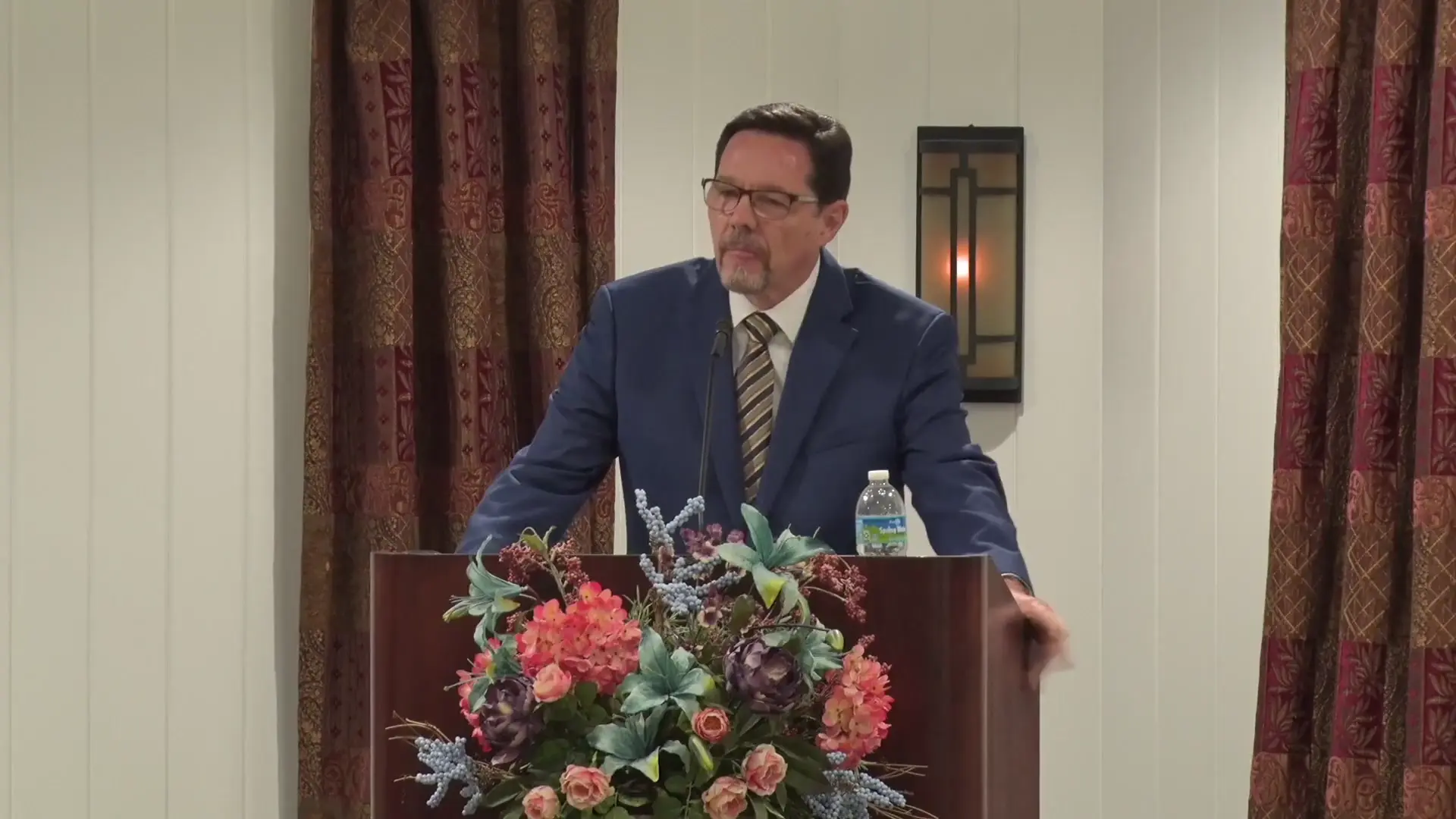Filter by Categories
Listen, Wait, and Then Speak
Sermonette by Ted E. BowlingJames provides some of the best advice on communication and control of the tongue. The correct order of communication is listening, waiting, and then responding.

Have You Become an Example to All Who Believe?
Sermon by Martin G. CollinsWhether we are called to welcome others, speak truthfully, keep commitments, or guard our own speech, credibility flows from consistent daily actions.
Prepare to Teach
Feast of Tabernacles Sermon by Martin G. CollinsWe will be kings and priests, responsible for those coming out of the tribulation. We must prepare now to fill the entire earth with the knowledge of God.
Fire Igniter or Fire Extinguisher
Sermonette by Bill OnisickRelationships in the church have been charred by loose lips and careless tongues described in James 3:2, setting on fire the course of nature by hell.
Take the Red Pill
Sermonette by Bill OnisickIf we were to consciously monitor our thoughts, we would be appalled about the percentage of our day that we are exclusively wrapped up in ourselves.
Ecclesiastes Resumed (Part Eleven)
Sermon by John W. Ritenbaugh (1932-2023)Ecclesiastes deals with quality of life issues for those who have been called, emphasizing responsibility and choice, continually fearing God.

Ecclesiastes Resumed (Part Thirty-Seven): Ecclesiastes 10:12-19
Sermon by Richard T. RitenbaughAs teachers, we are all burdened with an unholy tongue, but we need to rule it to produce only holy speech. Ecclesiastes 10 focuses on a leader using gracious speech.
New Covenant Priesthood (Part Nine)
Sermon by John W. RitenbaughPride elevates one above God, denigrating any dependence upon God, replacing it with self-idolatry. We ought to boast or glory in the Lord instead of ourselves.
Listening
Sermon by Richard T. RitenbaughBiblical listening is not just hearing, but active understanding and responding, leading to changed behavior. Not hearing is tantamount to rebellion.

Displaying Virtuous Character
Sermon by Martin G. CollinsSelf-control has both an inward and outward dimension, the latter concerned with human relationships, manners, and reflecting God's orderly mindset.
Who Are You?
Feast of Tabernacles Sermon by John O. ReidGod chooses the base and the foolish of the world, giving them the precious truth leading to sanctification and glorification, making us unique to God.
Many Excuses
Sermon by John W. RitenbaughWe need to avoid the trap of self-justification, allowing our hasty words to lure us into sin. We must be quick to listen, and slow to speak.
Our Part in the Sanctification Process (Part Five): Cultivating Patience
Sermon by David F. MaasNumerous scriptures show the bad effects of impatience committed by ancient Israel, while the patriarchs, Jesus Christ, and the Father set examples of true patience.
James and Unleavened Bread (Part One)
Sermon by Richard T. RitenbaughThe book of James applies to us after the sanctification process has begun. The most effective way of eliminating sin is to do righteousness.
Habakkuk: A Prophet of Faith (Part One)
Sermon by Martin G. CollinsWe should never be tripped up when we see bad things happen to good people or vice versa, realizing that history is indeed following God's timetable.
Strategies for Interfacing with Babylon Without Becoming Assimilated (Part Two)
Sermon by David F. MaasThere are three basic causes for discontentment and three strategies to contentment, enabling us to emulate the apostle Paul's content state of mind.
Ecclesiastes (Part Four; B)
Sermon by John W. RitenbaughGod manipulates events to occur at precisely the right time. The timing God uses for us are just as precisely planned and scripted as they were for Christ.